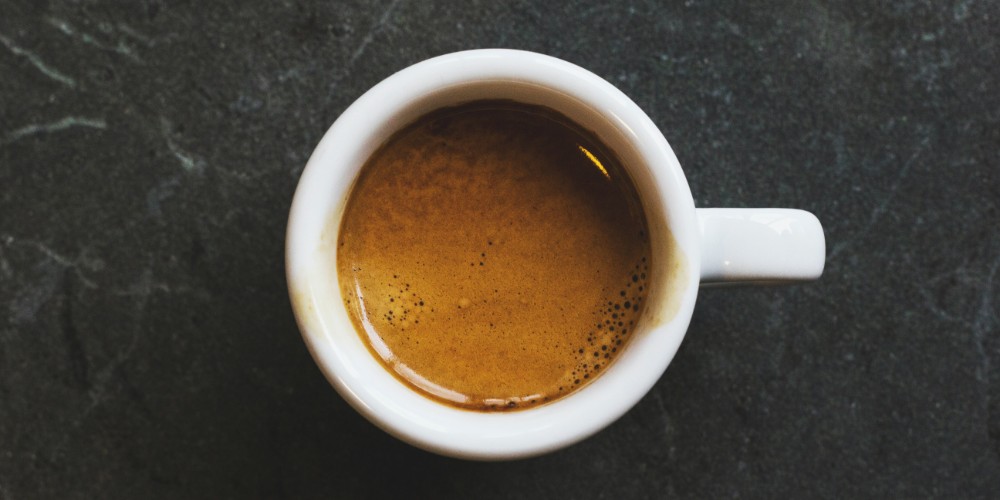Are you the one wondering why does my expresso taste burnt? It’s something everyone has done. We think we just made some good coffee in the morning, then… That taste, that smell… It looks like a mix of smoke from a fireplace and a wet ashtray. Even though these are creative names, I think most of us have tasted ashy or burned coffee. These tastes could be caused by a number of things, like the quality of the coffee beans, the temperature of the water, or the length of time the coffee is brewed.
In this article, we’ll talk about why does my espresso taste burnt and what you can do about it.
Related Posts: 10 Best Espresso Machine Under $200
Table of Contents
Why Does My Espresso Taste Burnt
Short Answer: Burnt tasting espresso comes from over-extracted coffee or burnt beans. The grind is too fine, the tamp is too hard, there’s too much coffee, or the beans are over roasted.
Why Does Espresso Have a Burnt Taste? Causes and Solutions

Coffee Beans that Have Gone Bad:
Regardless matter how fresh your coffee beans appear or smell, they may already be stale. It’s critical to remember that brewing coffee releases carbon dioxide from the beans. As a result, the more carbon dioxide produced the more flavor leaves from the coffee beans.
Finally, if the beans have not been properly stored or have been left out in the open for an extended period of time, this may be the reason for your cup of coffee tasting different than you would like.
To address this problem, throw out any old coffee beans and replace them with new ones. Buy quantities that will last you a week or two. It may be irritating for some, but there’s no doubt that fresh coffee tastes the best.
Mistakes in the Roasting Process:
Most people who like coffee like to roast their own beans, but that doesn’t mean that you’ll always make it right. To roast coffee beans, you need to keep the temperature steady throughout the process, which can be hard to do if you don’t have the right tools.
Also, it’s important to know that roasting coffee beans can sometimes go wrong. In reality, there are differences in the quality of the coffee roasted by different shops. The same thing you buy now might taste very different when you buy it again a few months from now.
So, what should you do to solve this? We suggest that you check your recipe twice to make sure it is the right one for roasting coffee. Also, we suggest that you check your devices to see if there are any problems. If the coffee tastes really weird, you might want to think about whether this is the right kind of bean for you.
Inaccurate Temperature:
You should know that you need to brew espresso at the right temperature for it to taste good. It is recommended that you make coffee at a temperature of about 205°F. This is the best temperature for brewing coffee because it keeps the coffee nice and hot without boiling.
When you brew your coffee at the right temperature, the water gets just hot enough to remove harmful oils and bad tastes. If you brew your coffee at a lower temperature, it may not be extracted enough, which will make it taste bad.
The answer to this question is very easy. All you have to do is buy a thermometer to keep track of how hot the brewing is. You can choose between a laser thermometer and an ordinary one. But keep in mind that laser thermometers can cost more.
If you don’t want to use a thermometer or don’t have one at home, there is a way to make sure your coffee tastes good. Just heat the water until it boils, then turn it off for about 30 seconds before putting the coffee beans in.
Water That Isn’t Good:
If you use tap water to make your coffee, you might want to switch to a different water source. Tap water has impurities in it that can easily change the way coffee tastes. If you put things you don’t want into a chemistry equation, the result would be different.
The problem’s solution is pretty easy to figure out. Before making coffee, you’ll need to filter the water from the tap. Or, if you have acid reflux, you could use a different kind of water, like alkaline water, which is perfect for making coffee.
Incorrect Equipment Used:
Using the wrong equipment could also be a reason why your coffee tastes burned, which is something you want to avoid. You might be trying to make an espresso without a machine that makes espresso. It is possible, but the end result might not be as good as if you used a machine.
Another thing to think about is where you put your brewed coffee and what you use to drink it. You shouldn’t put coffee that is boiling hot into a cup made of something like plastic. Coffee should be poured into containers made of stainless steel, glasses, or mugs made of ceramic.
Time for Brewing:
If coffee is brewed for too long, it could get a burned taste. If coffee is brewed for too long, it gets over-extracted and leaves a bitter taste in your mouth. You also don’t want your coffee to be under-brewed, because this won’t get enough flavor out of the beans and will make the coffee taste terrible.
Choosing the best length of time to brew isn’t as easy as just giving you time. It would only take a few tries to get it right. It means that you should slowly change your time to find out what works best for you, especially if you like trying out new dishes all the time.
The Expresso’s Reheating:
How about re-heating the cheeseburger or re-baking the cake that has already been filled? How will they taste? NO! They just lose their taste and freshness.
So, how can you expect your delicate espresso to taste the same after being heated up again in a very hot pot?
By reheating a fully brewed cup of espresso or coffee, the coffee continues to be brewed for a longer time, giving the smoothie a taste like burnt rubber.
So, it’s best to drink the Coffee right away after making it. If you don’t, you’ll have to deal with the rubbery, burnt taste.
Very Fine Coffee Grains:
If you try to grind your coffee beans too finely, you might over-extract the coffee, which can ruin it. It tastes bitter, just like when you cook something too long. Use the right grind degree for the brewing method you’ve chosen to avoid this.
How Can I Prevent the Bitter, Burning Taste of Espresso?
Follow the instructions if you don’t want to smell burnt espresso and want to enjoy the velvety froth on top.

1) Controlling the Temperature:
It is the first thing to think about if you want to avoid that burnt coffee smell. Provide a temperature between 197 to 205 degrees Fahrenheit. It is the best temperature for extracting something without getting burned.
Also, at this temperature, all the flavors and oil are taken out of the beans without making the ratio too strong.
2) Correct Dosage:
The second important thing is to add the right amount of coffee beans. Only then will you be able to taste how refreshing espresso tastes?
Most of the time, 7 to 8 grams of coffee are needed for a shot of espresso. A higher amount can make the drink too strong and give it a burnt smell.
3) Quick Extraction:
When it comes to espresso, the sweet taste is mostly set by how quickly the coffee is extracted.
In fact, the coffee beans have tannic acid in them, which gives espresso shots their strength.
But if you over-extract, you get more tannic acid out, which turns the strong taste into a bitter, almost burnt one.
4) Optimum Tamping:
We are aware that it is crucial to tamping the coffee powder to remove air pockets without impeding water flow. As a general guideline, 5 pounds of pressure should be added all at once to achieve the ideal pressure.
5) Pulling at the right time:
Tamping and pulling go together. So, tamp the powdered coffee and then pull it for about 28 to 30 seconds. If you wait too long, the taste will change and the espresso shot will become a carbonated drink.
6) Cleaning And Unclogging The Machine:
Finally, clean your coffee grinder frequently to eliminate scale building, which causes terrible taste.
How to avoid burnt-tasting espresso?: (Short Guide)
- Adjust the water temperature: If your espresso tastes burnt, the water temperature might be too high. Try lowering it to the recommended range of 195-205°F.
- Adjust the grind size: Over-extraction can cause a burnt taste, so try adjusting the grind size to ensure the coffee is not over-extracted.
- Clean your equipment: Regular cleaning and maintenance of your equipment is crucial to prevent a burnt taste.
- Use fresh coffee beans: Make sure you’re using fresh, high-quality beans and storing them properly to avoid a burnt taste.
Bottom Line:
Good espresso has a strong flavor and, depending on the beans, can have a slightly bitter aftertaste.
When made with Italian roast coffee beans, espresso tastes smoky and a little bit burnt.
Rich chocolate and caramel flavors come through in darker espresso, but it should never taste burnt.
If your espresso tastes burnt, that’s a good sign that something is wrong.
With fresh, high-quality, specialty coffee beans, the burnt taste can be fixed by trying different things until you find the right solution.
If the espresso is still burnt or too dark for your taste, try brewing it again with a different, more familiar coffee and see if you get closer to what you want.
Here are some FAQs related to “Why Does My Espresso Taste Burnt”:
Can burnt espresso beans make you sick?
Burnt espresso beans are not necessarily harmful to your health, but they can cause stomach discomfort and digestive issues.
What causes the burnt taste in espresso?
Burnt espresso is usually caused by over-extraction or overheating the coffee beans. This can also be due to the age of the beans or using low-quality beans.
Can I fix burnt espresso?
Unfortunately, once the espresso is burnt, there’s no way to fix it. The best solution is to start over and adjust the brewing method to avoid over-extraction or overheating the beans.
Is It OK To Consume Burnt Espresso?
No, you shouldn’t drink burnt espresso because it tastes bitter and bad and can ruin the experience of drinking coffee. Also, burnt espresso is more acidic than freshly brewed coffee, and it tastes bitter, which can make your stomach upset and make you feel sick or throw up.
It also has chemicals that are bad for you, such as acrylamide, which has been linked to a higher risk of cancer. Because of this, you should never drink burnt espresso if you want to stay safe and have a better coffee-drinking experience.
What Dosage of Coffee Should I use?
In general, you should use about 18 grams of coffee for every ounce of water when making espresso. This will make a strong, but not too strong, drink. You can use less coffee if you want your espresso to be less strong. On the other hand, if you want your espresso to be stronger, you can add more coffee. Don’t forget that if you use too much coffee, your espresso will taste bitter.
Why is Tamping Important, and What is it?
Before making coffee, you tamp the coffee grounds down in the filter. This is important because it lets water flow evenly and keeps things from getting clogged up. If the coffee grounds aren’t pressed down, the water will move through too quickly, making espresso that is weak or bitter.
Meta Description:
